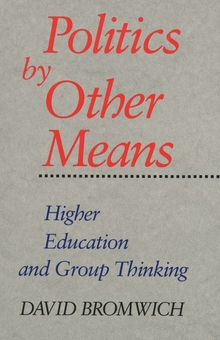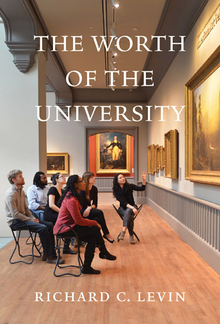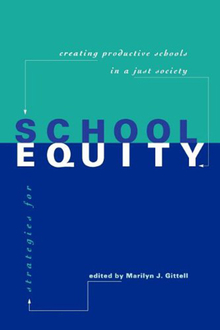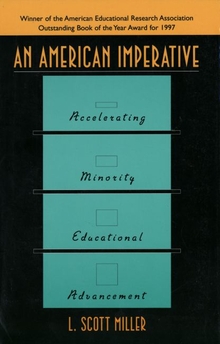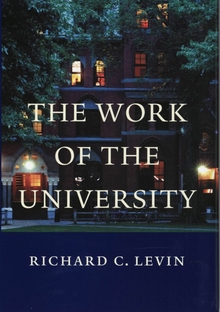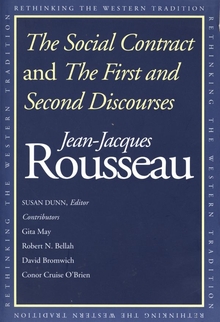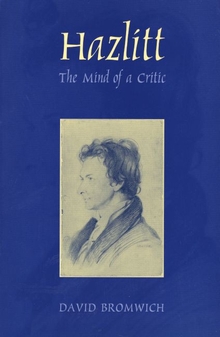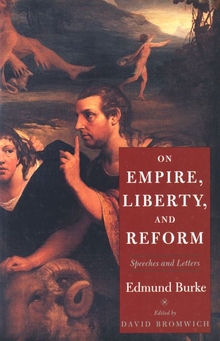Politics by Other Means
WARNING
You are viewing an older version of the Yalebooks website. Please visit out new website with more updated information and a better user experience: https://www.yalebooks.com
Higher Education and Group Thinking
David Bromwich
Bromwich argues that rivals in the debate over education have one thing in common: they believe in the all-importance of culture. Each assumes that culture confers identity, decides the terms of every moral choice, and gives a meaning to life. Both sides therefore see education as a means to indoctrinate students in specific cultural and political dogmas. By contrast, Bromwich contends that genuine education is concerned less with culture than with critical thinking and independence of mind. This view of education is not a middle way among the political demands of the moment, says Bromwich. Its earlier advocates include Mill and Wollstonecraft, and its roots can be traced to such secular moralists as Burke and Hume.
Bromwich attacks the anti-democratic and intolerant premises of both right and left—premises that often appear in the conservative guise of "preserving the tradition" on the one hand, or the radical guise of "opening up the tradition" on the other. He discusses the new academic "fundamentalists" and the politically correct speech codes they have devised to enforce a doctrine of intellectual conformity; educational policy as articulated by conservative apologists George Will and William Bennett; the narrow logic of institutional radicalism; the association between personal reflection and social morality; and the discipline of literary study, where the symptoms of cultural conflict have appeared most visibly. Written with the wisdom and conviction of a dedicated teacher, this book is a persuasive plea to recover a true liberal tradition in academia and government—through independent thinking, self-knowledge, and tolerance of other points of view.
"This is perhaps the most important book on American higher education to appear in recent years. It avoids the flaws of so many recent discussions, above all the alternations between special pleading and institution bashing. Bromwich knows firsthand what is really happening in American colleges and universities and how these developments fit into the wider cultural and social movements of our time. His analysis is steady, incisive, unapologetic, and indispensable."—W. Robert Connor, Director, National Humanities Center
"Politics by Other Means should shake up the academy, perhaps even shake it free from some of the obsessive conformity and nonsense that has come to afflict life in the universities."—C. Vann Woodward, Sterling Professor of History Emeritus, Yale University
"By far the most thoughtful analysis I have read of the current politicization of the humanities. With clear analyses and acid wit, Bromwich writes for both the layman and the scholar. He offers not only a clear critique but also a revitalized vision of liberal education and its goals."—Gary Saul Morson, Frances Hooper Professor of the Arts and Humanities, professor of Slavic languages, Northwestern University
"Bromwich courageously refuses to choose between the two current Manichaean versions of cultural policy—either the defense of established values or the promotion of new group interests—and paves the way for a (truly) liberal education of the mind."—Tzvetan Todorov, Director of Research, Centre National de la Recherche Scientifique
"A powerful and revelatory book, continuously stimulating, resourceful, and written in a style that is at once noble and accessible. This is a profoundly serious work, far better than any recent book on modern higher education."—George Kateb, Professor of Politics, Princeton University
"Politics by Other Means establishes David Bromwich as one of the most astute, learned, and humane critics of contemporary intellectual life in America. His lucidity is all the more remarkable in a situation where, as he shows, essential words like 'values' and 'culture' have been rendered nearly useless by shallow and perverse thinking in and out of the academy."—Richard Poirier, Raritan Quarterly
"A compelling call for the return to 'true education'. . . . Well-written, deeply felt, and far-reaching."—Publishers Weekly
"Sharp-tongued. . . . Easy to enjoy. . . . The abiding impression left by this book . . . is of its eloquence."—Peter Scott, Times Higher Education Supplement
"A marvelous polemic against the present mindless separation of power and intellect in government and the equally senseless confusion of politics and education in the academy. . . . [A] rich argument."—Paul Levine, Nation
"David Bromwich knows how to think for himself, and he wants the rest of us to do so as well. Politics by Other Means is a genuinely thought-provoking book, packed with theoretical insights and arresting examples. No one concerned about the contemporary university, or the society in which it is uneasily embedded, can afford to ignore it."—William A. Galston, Washington Post Book World
"Deals intelligently with contemporary American educational issues —some pertaining to Canada."—Mark Thompson, Toronto Globe and Mail
"A well-written, incisive, definitive analysis of the threat to liberal education in our higher institutions of learning by those who advance antiquarian-reactionary and academic radical ideas of tradition. . . . Recommended."—Choice
"By far the most thoughtful analysis of the current decrepitude reigning in humanities departments. With precision and without diplomacy, Bromwich exposes the bad faith, shoddy logic, and weak grasp of history that support prevailing orthodoxies."—Saul Morson, Heterodoxy
"A marvelous polemic against the present mindless separation of power and intellect in government and the equally senseless confusion of politics and education in the academy."—Paul Levine, Nation
"Brilliant and deeply felt, Politics by Other Means should not only be the last word in the debate over higher education, but a classic work on a timebound controversy."—Lee Siegel, Commonweal
"Politics By Other Means is not just another salvo in the debate about recent ideological conflict in higher education. Critical of both political conservatives and academic radicals, Bromwich identifies their deceptive language as he articulates a liberal view of tradition and change."—James Fulcher, Quarterly Review of Doublespeak
"[Bromwich's] analysis of the PC phenomenon . . . is fresh, keen, penetrating, and thorough."—Carol Iannone, Commentary
Publication Date: February 23, 1994

